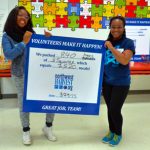
UW, TAF, and TAF Academy receive $1.5 million to engage youth in computational inquiry in STEM
FOR IMMEDIATE RELEASE: Oct. 21, 2015
Press Contact:
Abby Rhinehart, Communications Specialist, UW Institute for Science + Math Education
rhinehah@uw.edu | 206.697.2940

Partnership between UW, TAF and TAF Academy receives $1.5 million to engage youth in computational inquiry in STEM
New R&D project will develop a novel curriculum to engage diverse middle and high school students in STEM inquiry through computing.
A partnership between the UW Institute for Science + Math Education, Technology Access Foundation (TAF) and TAF Academy Middle School and High School has received a $1.5 million grant from the National Science Foundation (NSF) STEM+C program. The three-year grant will bring together interdisciplinary teams to design and research a curriculum approach that integrates computing and interdisciplinary, project-based STEM learning. The project will engage culturally and linguistically diverse middle and high school students in the investigation of real-world, contemporary STEM topics using computational inquiry approaches like modeling of natural systems, analysis of large data sets and programming.
“While computation and computational modeling are essential to STEM fields, they are often not introduced to students until college. Our curriculum project will bring computational practices into middle and high school classrooms earlier and integrate it deeply with STEM projects which are relevant to these students,” said UW Professor Philip Bell, PI of the project. “This is an opportunity to develop a new, integrated model to help middle and high school students develop proficiency in computational inquiry while learning STEM concepts.”
TAF Academy is a culturally and linguistically diverse middle and high school in the Federal Way School District that prepares students for college and careers in STEM. Curricula developed in this project will be designed to support these students. The curricula will also help illustrate how computational inquiry can enhance the new vision for STEM education laid out in the Next Generation Science Standards and the Framework for K-12 Science Education. This vision advocates that students engage in STEM practices like using mathematics and computational thinking, developing and using models, and analyzing and interpreting data in order to learn and apply science concepts as part of meaningful science and engineering investigations.
“We’re really excited about the Next Generation Science Standards and excited to have this rich partnership that will help us bring those standards and learning to life,”
said TAF Academy Principal Paul Tytler, noting that the standards connect well to TAF Academy’s project-based curriculum approach. “My hope is that with this partnership we design some really engaging projects that are able to capture our students’ interests and passions,” Tytler added.
“The partnership with the Federal Way School District, TAF and the UW gives us both the foundation and support to do this.”
“This is a new way to look at the whole concept of computing, all the ways we use computing skills, and how they feed into our concept of STEM,” said co-PI and TAF Executive Director and Co-Founder Trish Millines Dziko. “I hope that students realize that they do have capacity to work at this level and to solve problems at this level…. I want students to see themselves as pioneers, because they will lead this work.”
Interdisciplinary teams will develop this new curriculum model, as the project will bring together teams of middle and high school teachers, computing professionals, STEM professionals, learning scientists and educational technologists. The project will not only develop curriculum units, but will also create an overall framework and implementation strategy that supports teachers and students as they adopt these new lessons, including the mentoring program STEM OUT, which is in its second year at TAF Academy.
“We’re equal partners in this, and we very rarely get to be equal partners in this kind of work,” said Dziko.
The UW team will study the impact of this project on the students, teachers and STEM professionals involved, investigating questions around: students’ STEM learning, identities and interests; teacher learning, instructional practices and curriculum development; and STEM professionals’ impacts and roles. As the project progresses, the team will broadly share its project-based curriculum development strategy for use at other schools.
“It’s truly exciting to hear Federal Way Public Schools students will be part of this groundbreaking work,” Federal Way Public Schools Superintendent Dr. Tammy Campbell said.
“The partnership between the Technology Access Foundation and our district not only benefits students in the TAF Academy, it provides an incubator for education advances that ultimately can benefit all of our district’s students, and beyond.” -Dr. Tammy Campbell, Federal Way Public Schools Superintendent
This research and development grant is part of the NSF’s STEM + Computing (STEM+C) Partnerships program, which seeks to enhance K-12 student learning in both STEM and computing topics. The project supports research and development of courses, curricula, and other resources that integrate computing into STEM education.
“Computational inquiry is increasingly central to contemporary science,” Bell said. “All students should have meaningful access to such research experiences and the educational, career and civic opportunities related to those forms of inquiry and knowledge.




